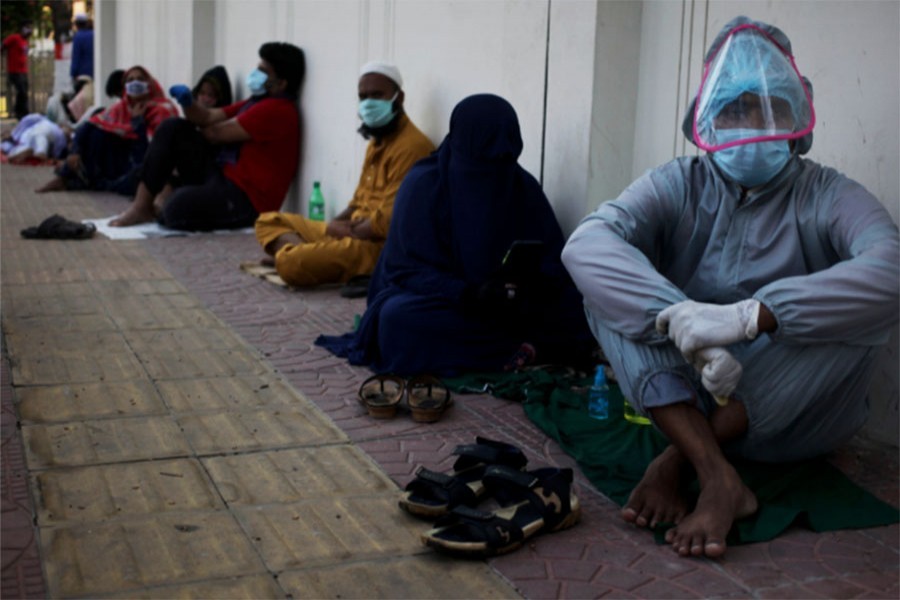
Published :
Updated :

Apart from playing havoc with man's physical wellbeing, including their lives, the ongoing pandemic has long invaded the areas of human relations. In the past, upon meeting a close friend after a long gap a person would embrace the latter warmly. If the two had a little trouble recollecting initially all their sweet old days, they would at least shake hands heartily. In the times of Covid-19, the encounter of two health-conscious friends witnesses fist-bumping. This health protocol is strictly followed in the developed countries. It is making insidious entries also into Bangladesh.
In spite of the reckless flouting of the government-enforced health guidelines, a large section of people in Bangladesh try to abide by them. During the times when the capital is under a 'shutdown' or a 'strict lockdown', guests are not welcomed to a family home. If anyone insists on visiting the place of an acquaintance, the latter tries his best to discourage him. In case the entreaties do not work, the 'unwelcomed' guest is allowed. But not before he or she is sanitised at the living room's door. In normal times, this treatment would have led to the guest feeling humiliated. In extreme cases, it might create a prolonged rift between the two sides. Except the hypersensitive people with a false self-importance, the average people these days have become almost used to these treatments.
The covid-19 pandemic has long proved a scourge of the century. No matter what was one's earlier economic position, people irrespective of social classes have borne the brunt of the global malady. To put it briefly, every economic sector has been on decline since the outbreak struck societies. People have seen the post-World War-II famines and economic depression. At that time syndicates of hoarders and dishonest middlemen aggravated human sufferings in the colonised and weaker countries. In the present pandemic-time, those wastes of humanity have staged a comeback --- though in a different face. The Covid-19 pandemic victims, compared to those of the great famine, have been made to witness the full-scale fraying of human bonds. During the non-availability of foods in a country or several countries, starving people can come out into the streets to beg for food. The sufficiently fed do not feel threatened by their movement or the spots where they remain huddled together. In a few cases there were threats of cholera outbreak in the past.
Famines have been wiped out from all the vulnerable areas in the world. So have the bacteria accompanying them. But the scourge of the highly communicable diseases still haunts man in different territories. Like the dreadful bouts of plague in the medieval times and its re-emergence in the 18th-19th centuries, Covid-19 has swooped down on mankind with all its fury. In the last one-and-half years, the 21st century saw how the novel corona virus-borne pandemic can wreak havoc on vast continents. Bangladesh, being a country with resources too poor to battle the outbreak, was not spared. The Covid-19, shortened form of corona virus, impaired the prospects for its entering the process of graduating into a middle-income nation. Not only that, a number of its mega projects involving communication, and trade and business hit unexpected construction snags. As a result, their completion is feared to be delayed. The spectre of cost overrun is set to jeopardise the mid-level and smaller projects.
Experts dealing with the impacts of the pandemic on society, education and informal economic sectors have long detected the grim message. Among these sectors, they have discovered the most distressing of developments in the man-to-man relations. In order to remain subservient to social distance protocols humans, in fact, are set to distance themselves from each other for years to come.


 For all latest news, follow The Financial Express Google News channel.
For all latest news, follow The Financial Express Google News channel.